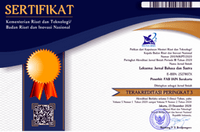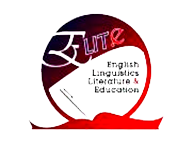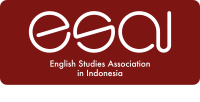OPINION GAP: A STRATEGY IN IMPROVING STUDENTS’ SPEAKING ABILITIES
DOI:
https://doi.org/10.22515/ljbs.v3i1.1208Keywords:
Opinion Gap Strategy, Speaking AbilityAbstract
The aims of this study were to find out how Opinion Gap Strategy can improve students speaking abilities and to know students’ responses on the implementation of Opinion Gap Strategy in speaking class. The study employed Classroom Action Research consisting of four steps, namely: planning, action, evaluation, and reflection. The instruments used to collect the data were tests, observations, and questionnaire. This study was conducted at class X4 of SMA Negeri 6 Ambon in 2016/2017 Academic Year at which the students were identified as having problem in speaking abilities. Based on the result of study, the implementation of Opinion Gap Strategy could help and motivate students to express their opinions, ideas, and feelings ona given topics. Furthermore, this strategy also provided positive effects since the students’ responses on the questionnaire sheets showed students’ agreement on the implementation of the strategy to improve their speaking abilities.
Downloads
References
Al-Noori, Bushra Sadoon, & Dhea Mizhir Krebt. 2015. “The Effect of Role-Play Activity on Iraqi EFL Student’s Speaking Abilities.†The International Journal Of Humanities & Social Studies 3 (12): 298–301. www.theijhss. com
Aliakbari, Mohammad, & Ferdows Mohsennejad. 2014. “Advances in English Language and the Effect of Story Retelling Opinion Gap Task On Iranian EFL Students’ Speaking Skill.â€Advances In English Language And Literature (AELL) 1 (2): 1–8. https://www.researchgate. net/profile/ Mohammad_Aliakbari/publication/264546731_The_Effect_of_Story_Retelling_Opinion_Gap_Task_on_Iranian_EFL_Students’_Speaking_Skill_Advances_in_English_language_and_literature/links/53e47eaa0cf21cc29fc8fbb1.pdf
Derakhshan, Ali, Atefeh Nadi Khalili & Fatima Beheshti. 2016. “Developing EFL Learner’s Speaking Abilities, Accuracy and Fluency.†English Language and Literature Studies 6 (2): 177. doi:10.5539/ells.v6n2p177.
Fairfax County Public Schools. 2013. Performance Assessment for Language Students - Level One: Speaking Tasks Holistic Rubric. https://www.pwcs.edu/ academics___programs/WorldLanguages/p_a_l_s_rubrics/p_a_l_s/.
Ghiabi, Shima. 2014. “Investigating the Effects of Story Retelling Technique as a Closed Task vs. Story-Completion as an Open Task on EFL Learners’ Speaking.†International Journal of English and Education 3 (3): 17–25. www.ijee.org.
Keegan, Phil. 2009. In My Opinion: A Photocopiable Collection of Opinion Gap Discussion Topics (1st Edition) Brattleboro: Pro Lingua Associates ESL/EFL Book Publisher. http://www. prolinguaassociates.com/In_My_Opinion/review.htm.
Lingam, Govinda Ishwar. 2012. “Action Research : Promise and Potential for Improving Teacher Professional Practice and the Learning Organisation.†American International Journal of Contemporary Research 2 (4): 47–57. www.aijcrnet.com
Marzban, Amir & Mojgan Hashemi. 2013. “The Impact of Opinion-Gap Tasks on the Speaking of Iranian Intermediate EFL Learners.†Procedia: Social and Behavioral Sciences 70. Elsevier B.V.: 943-48. doi:10.1016/j.sbspro.2013.01. 142
Pathan, Mustafa Mubarak, Al Tiyb Al Khaiyali & Zamzam Emhemmed Marayi. 2016. “International Journal of English and Education.†International Journal of English and Education 5 (2): 19–39. www.ijee.org.
Prabhu, NS. 1988. “Second Language Pedagogy.†TESOL Quarterly 22 (3): 498. doi:10.2307/3587293.
Saeed, Ahmad. 2013. “Applying Communicative Approach in Teaching English as a Foreign Language A Case Study of Pakistan.†Porta Linguarum, 187–203. doi:1697-7467.
Downloads
Published
Issue
Section
License
The copyright of the received article shall be assigned to the publisher of the journal. The intended copyright includes the right to publish the article in various forms (including reprints). The journal maintains the publishing rights to published articles.
In line with the license, the authors and users (readers or other researchers) are allowed to share and adapt the material only for non-commercial purposes. In addition, the material must be given appropriate credit, provided with a link to the license, and indicated if changes were made. If authors remix, transform or build upon the material, authors must distribute their contributions under the same license as the original.







